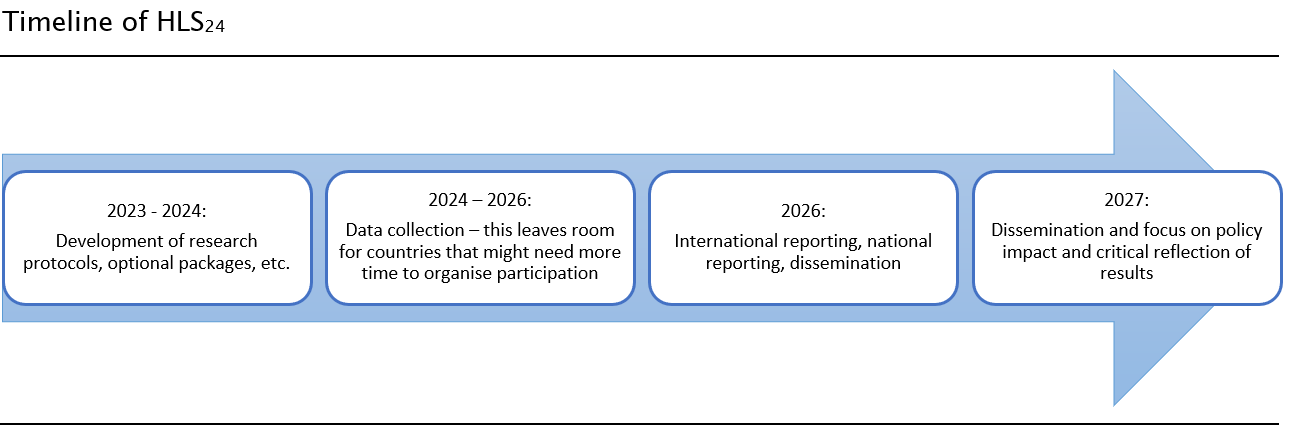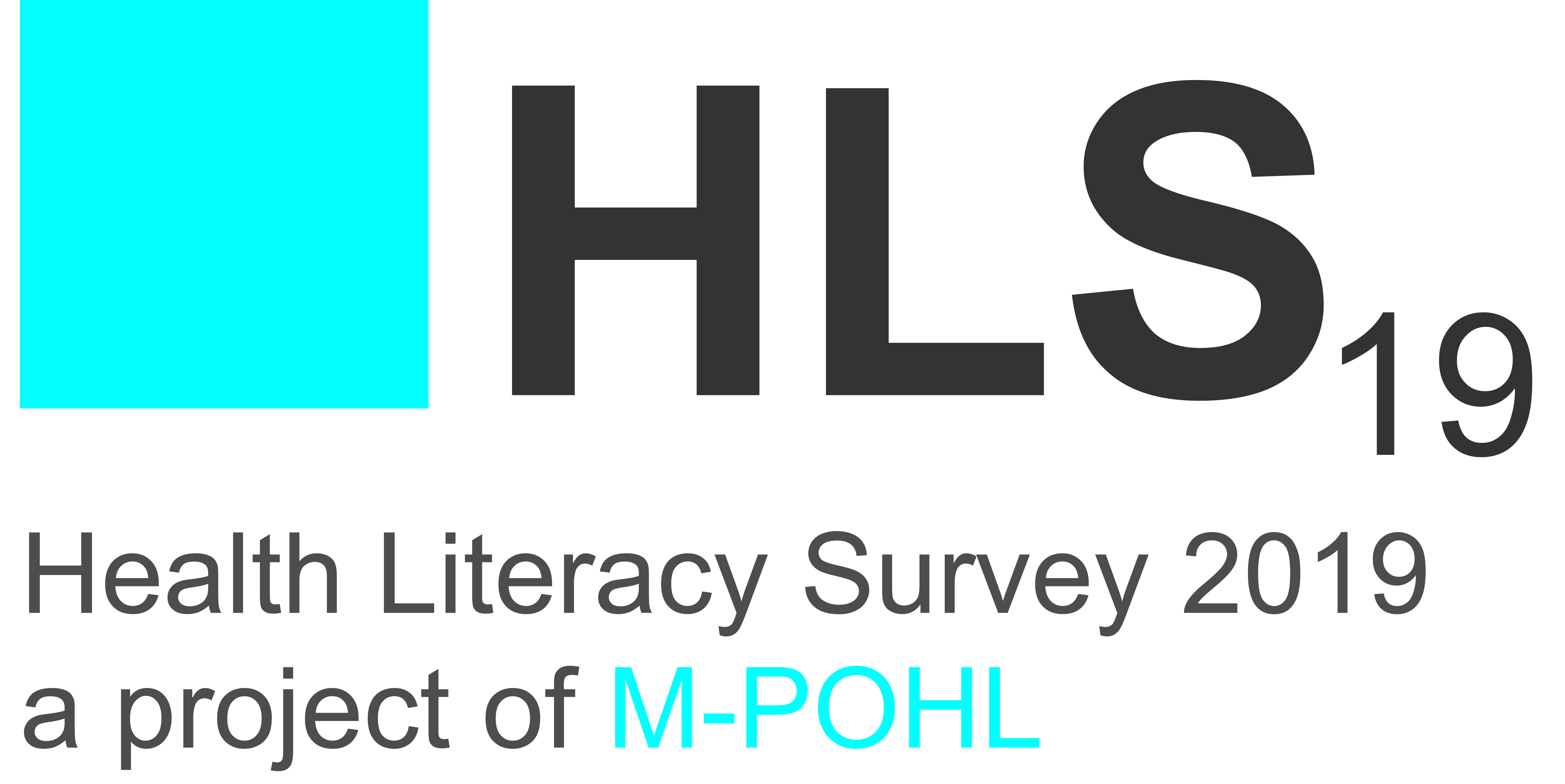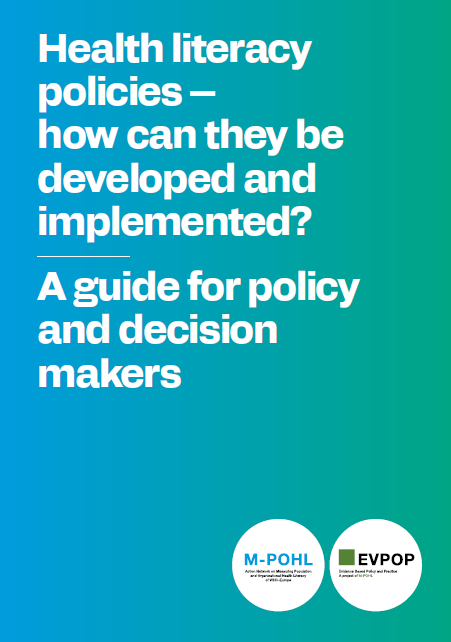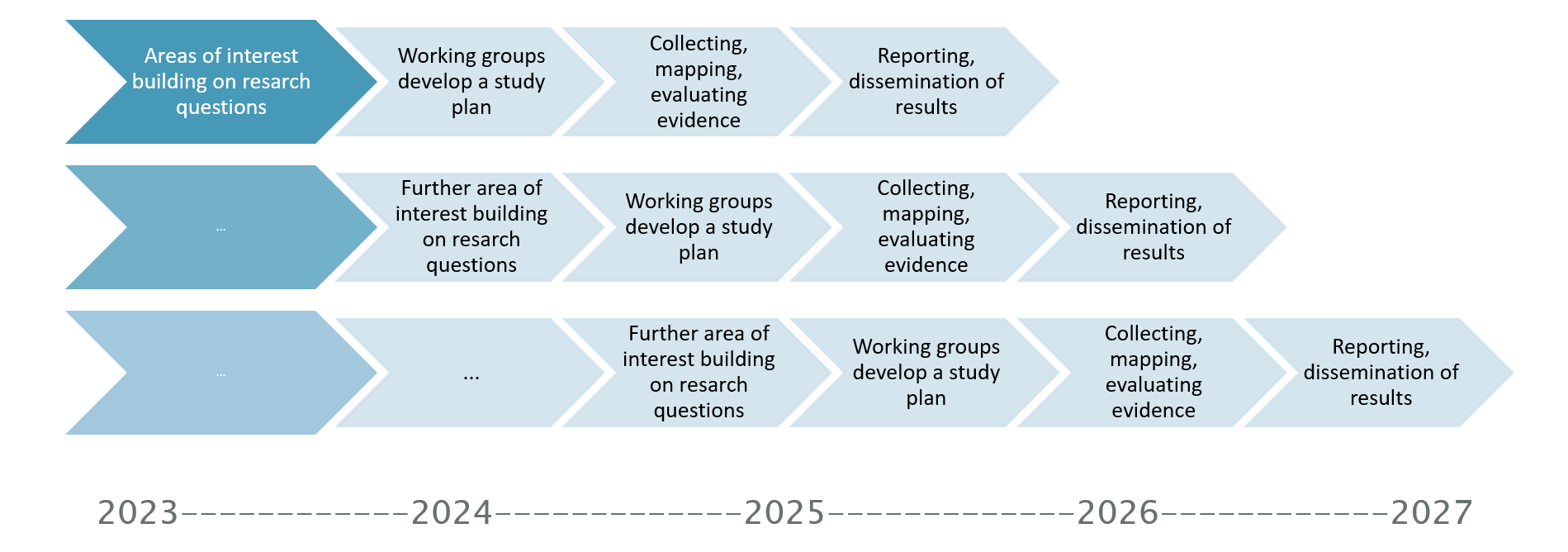Results & publications
Tools
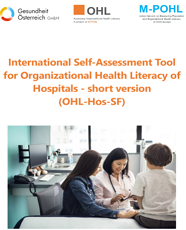
International Self-Assessment Tool for Organizational Health Literacy of Hospitals - short version (OHL-Hos-SF)
The OHL-Hos-SF was developed by the M-POHL Working Group on Developing the OHL-Hos-SF, consisting of experts from 10 countries and involving hospital staff as “users of the tool”. The OHL-Hos-SF has 8 standards (reflecting the OHL-Hos standards, but with revised wording, 19 sub-standards and 60 indicators (when including sub-indicators 72 items are used). The indicators for each sub-standard operationalize concrete observable or measurable elements.A factsheet on the OHL-Hos-SF can be found here.
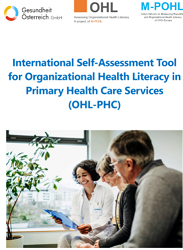
International Self-Assessment Tool for Organizational Health Literacy in Primary Health Care Services (OHL-PHC)
The OHL-PHC was developed by the M-POHL Working Group on Organizational Health Literacy in Primary Health Care Service consisting of experts from 13 countries. The tool builds on the OHL-Hos and the OHL Self-AsseT (De Gani et al. 2020). It has 7 standards, 19 sub-standards and 51 indicators (when including sub-indicators 70 items are used). The indicators for each sub-standard operationalize concrete observable or measurable elements. The tool is applicable at any type of organization that offers primary care, such as primary care centers, offices of generalist health professionals, ambulatory health care centers, family planning centers and pharmacies.A factsheet on the OHL-PHC can be found here.
Both tools are available as word and excel documents. Word versions provide detailed introductions, excel versions enable the automatic creation of result overviews in percentage and as graphs. Supporting tools for summing up results from individual assessment and enable the visualization of results by creating automatic graphs were created.
Reporting
Participating countries are encouraged to publish their national results of the OHL project. In the final phase of the project, an International Report will be produced.

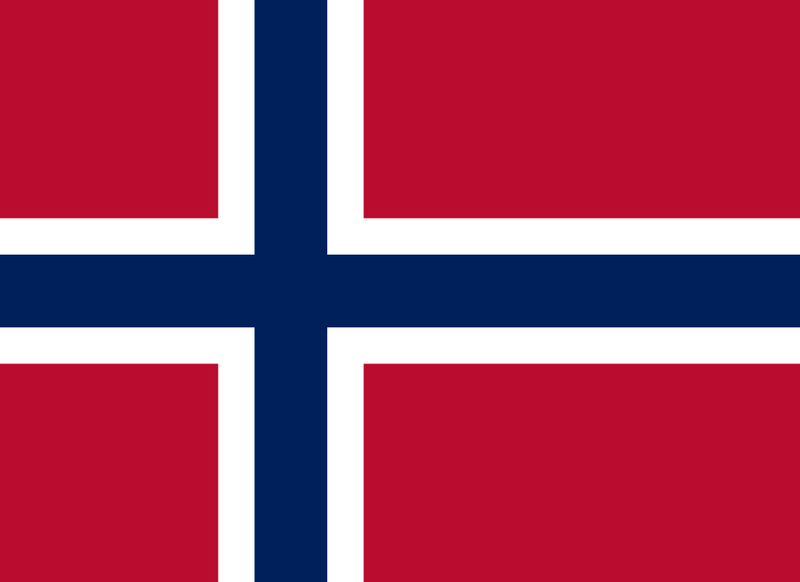
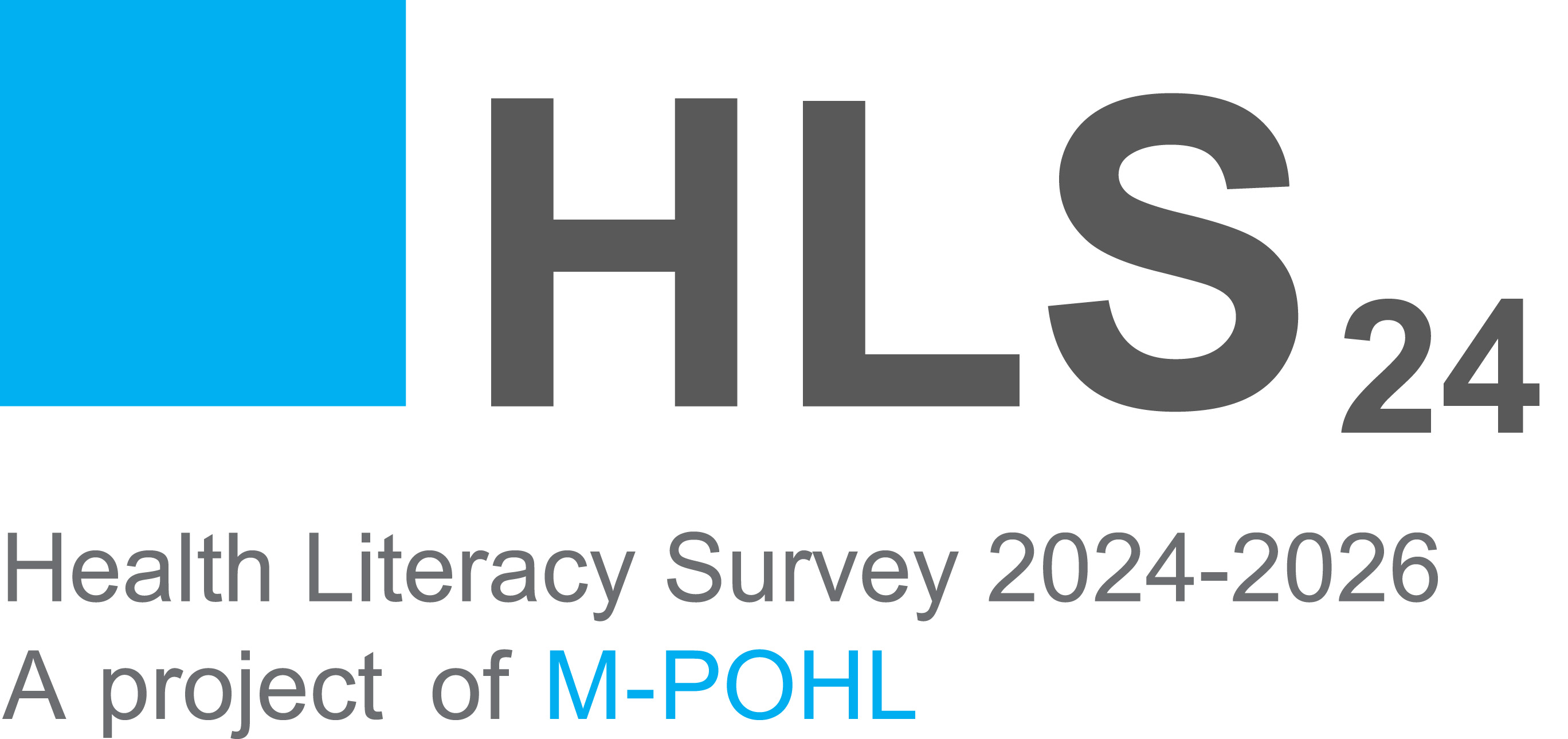 M-POHL aims to provide empirical data for monitoring health literacy in the WHO European Region, and this is best done by institutionalizing regular, high quality internationally comparative population health literacy surveys. Based on results from HLS19, it was recommended that the health literacy of the adult resident population should be measured periodically in as many countries as possible. Therefore, a next health literacy population survey, the Health Literacy Survey 2024-2026 (HLS24), was initiated with an overall project timeline from 2023 to 2027.
M-POHL aims to provide empirical data for monitoring health literacy in the WHO European Region, and this is best done by institutionalizing regular, high quality internationally comparative population health literacy surveys. Based on results from HLS19, it was recommended that the health literacy of the adult resident population should be measured periodically in as many countries as possible. Therefore, a next health literacy population survey, the Health Literacy Survey 2024-2026 (HLS24), was initiated with an overall project timeline from 2023 to 2027.